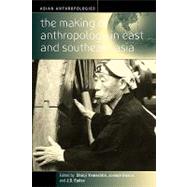The Making of Anthropology in East and Southeast Asia
, by Yamashita, Shinji; Bosco, Joseph; Eades, J. S.; Yamashita, Bosco- ISBN: 9781571812599 | 1571812598
- Cover: Paperback
- Copyright: 10/1/2004
Because of the hegemony of institutions in North America and Europe in the international academic system, scholars from these regions often overlook the contributions of scholars in other regions to the development of their discipline. This seems to be especially true in the case of anthropology in Asia where the contributions of local scholars are often ignored by the wider academic community, especially if they are written in languages other than English.In order to help bridge the communications gap and to make the distinctive Asian contribution to the discipline better known, this path-breaking book presents a series of essays on the development of anthropological research in Asia, including contributions on Japan, China, Taiwan, Korea, Malaysia, and the Philippines. Major issues discussed include: the nature of the anthropological "world system" of scholarship: the development of anthropology within the context of colonialism, whether British, American or Japanese; the impact on postwar anthropology of political change and rapid economic growth; and the position of ethnic and cultural minorities confronting states with their own nationalist agendas. It also considers the current state of the discipline in the region against the background of growing globalization and the flows of people, capital and information across national and regional boundaries.







